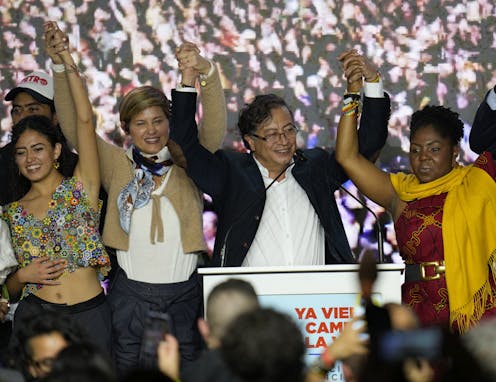
Gustavo Petro, a former guerrilla fighter, obtained 40.34 per cent of the vote in the first round of Colombian elections on May 29.
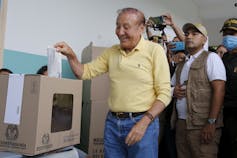
He will face Rodolfo Hernández, a businessman-turned-politician who won 28.17 per cent of the vote to finish in second place, in the final round on June 19.
These results are striking for three reasons.
First, if Petro prevails, it will be the first time a left-wing candidate has become president in a country traditionally governed by right-wing, elitist parties.
Second, both candidates ran on platforms critical of the political establishment.
Third, Uribismo, the dominant right-wing political movement formed around former president Álvaro Uribe, will not have a candidate in the decisive round of elections for the first time in 20 years.
Rebel turned politician
A former member of the M-19 leftist guerrilla group, Petro started his political career in 1991, just after the organization disarmed as part of a peace process.
In the past 30 years, he’s been a member of congress (from 2006 to 2010 and again from 2018 to 2022), mayor of Bogotá (from 2012 to 2015) and three-time presidential candidate (in 2010, 2018 and 2022).
Born to a middle-class family in a small town in the Caribbean region of Colombia, he is different from the so-called Andean elites that have traditionally dominated the country. If elected, Petro promises, among other things, to stop oil exploration, to provide free public higher education for all and to thoroughly revamp the pension system to increase coverage.
His proposals for radical change have made him popular with younger and lower-income voters, many of whom participated in massive protests in 2021 against the right-wing government of incumbent Iván Duque, who holds the lowest approval ratings of any president in the country’s recent history.
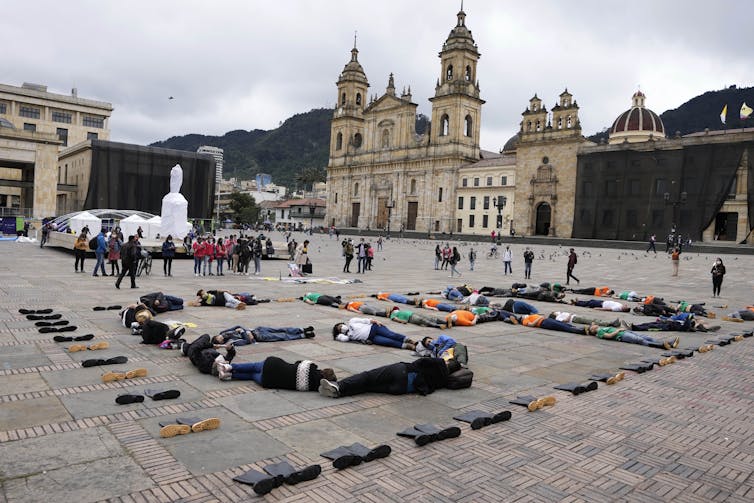
Petro’s detractors, on the other hand, decry his past membership in a rebel organization and what they describe as his populist proposals. Critics argue that his tenure as mayor of Bogotá was mired in controversy and that he will try to perpetuate that style of governance if president.
Resistance to Petro’s success, however, should be understood within the historical context of the elitist right-wing dominance of Colombia and the exclusion of left-wing alternatives.
Colombia’s fear of the left
Colombia has been touted in the past as an example of democratic stability in South America. The only military dictatorship the country suffered in its recent history (1953–57) was short-lived and relatively benign compared to the more repressive regimes of other South American countries.
Unlike most of the continent’s countries, populist leaders haven’t obtained power in Colombia. Also, while the majority of the region turned left in the early 2000s, Colombians elected Álvaro Uribe, a neoconservative leader who prioritized the market and the militarization of security.
This apparent political stability has not come without a price. Elitist parties — both liberal and conservative parties — monopolized power throughout the 20th century and thwarted the rise of left-wing parties and dissident movements.
The front-runner for the presidential elections in the late 1940s, populist leader Jorge Eliécer Gaitán, was assassinated in 1948, giving way to a dark period known as “La Violencia” that resulted in the massacres of thousands of people. Later, the systematic killing of left-wing leaders, politicians and activists by right-wing paramilitaries and state agents kept power firmly in the hands of traditional elites.
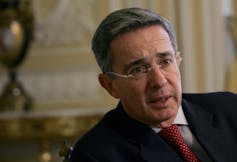
During the eight years that Uribe was president, 6,402 people were the victims of extrajudicial killings perpetrated by the army.
Uribe has been a dominant figure in the country for the last 20 years.
He was president from 2002 to 2010; his defence minister and former ally was voted president in 2010; his chosen candidate, Iván Duque, won his presidential bid in 2018; and Uribe successfully led the campaign against the peace accord with the country’s biggest guerrilla group — FARC — in the 2016 referendum.
The deal was ultimately implemented despite the negative result, and Uribe is now increasingly unpopular among Colombians. Institutional reforms and the 2016 peace accord have also invigorated the left.
After being portrayed for decades as the internal enemy, the left is finally a serious contender for the office of president.
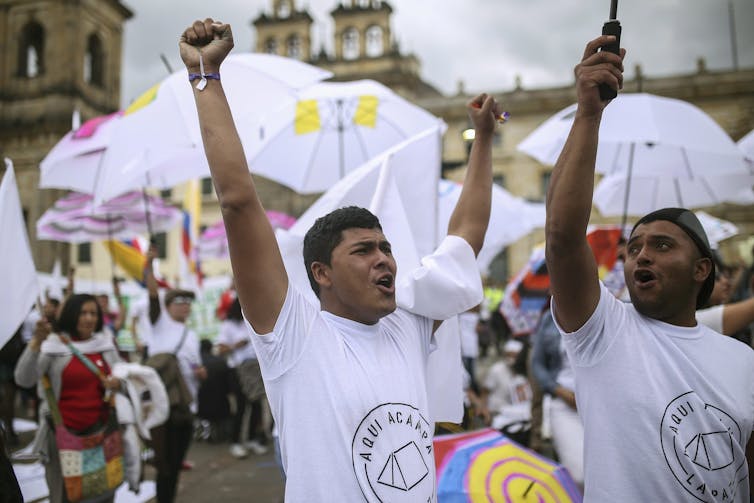
Future implications
Petro will face important challenges. First, dispersed anti-left political forces will now likely coalesce around the right-wing outsider Hernández, mounting a serious bid for the presidency.
Second, Petro’s party, Pacto Histórico, doesn’t hold a majority in congress and, if elected president, he will have to establish shaky alliances with unlikely partners.
And while his promises for radical change have inspired many, heightened expectations might quickly turn into disappointment or backlash, similar to left-wing leaders Gabriel Boric in Chile and Pedro Castillo in Perú.
Nonetheless, the consolidation of the left as a legitimate and viable electoral option in Colombia is important for the democracy of a country that has suffered decades of politically motivated conflict and high levels of socioeconomic inequality.
These elections can be seen as a sign that the left-right divide in Colombia is moving from armed confrontation to democratic disagreement.
Juan Manuel Morales currently does fieldwork with right-wing activists in Colombia for his dissertation.
This article was originally published on The Conversation. Read the original article.







